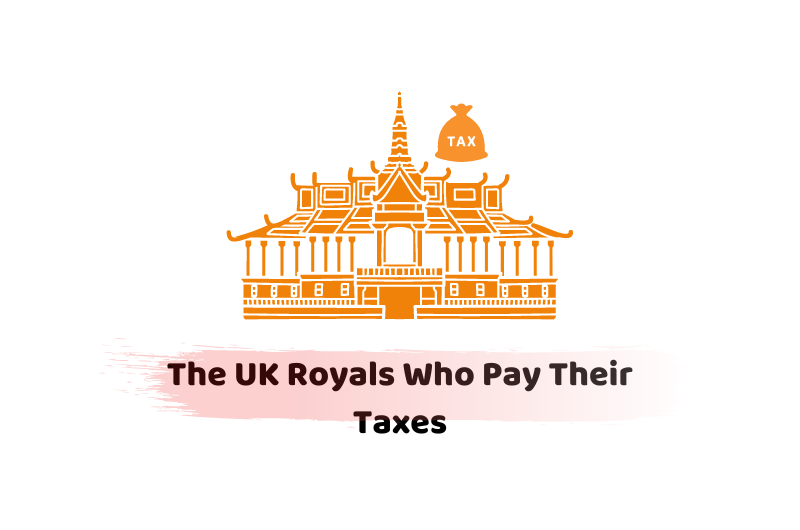Amongst the powerful institutions in the UK, one name is the royal family as well. However, do you ever wonder about the UK royals who pay their taxes? To your surprise, many of the royal family members are liable to pay tax and they do it just like other UK residents. According to HMRC, even the Queen is not exempted from the responsibility of tax. Sounds interesting?
Well, further in the discussion in this guide, we have covered the most frequently asked questions like the benefits of being a royal family member, who pays the taxes of the royal family, are tax implications any different for the UK royals, what about other tax implications, and how do they fulfil it?
Get in touch with our young, clever, tech-driven professionals for your business if you want to know about the UK royals who pay their taxes.
Royal Family Comes With its Benefits
We can not deny the benefits of being a royal family member. This might get you the benefits thoughts of personal butlers, lavish properties, crown jewels, and corgis. However, you are neglecting the set of rules that are very strict to follow for the royal members. One of the strict rules belongs to the tax implications, as each one of them has to ensure that they make their tax payments right on time. This affair of tax treats them just like any other resident in the UK.
However, this should not make you think that the Prince and the Queen spend hours working on their self-assessment tax returns. Further, we will dive into the discussion of everything that you must know about the royal family and their world of tax. This will help you develop an understanding of how the tax system works for the royal family members and what exactly the tax implications make the royal family members pay.
The UK Royals Who Pay their Taxes?
In simple words, there is no doubt that each family member of the royal family pays taxes. However, the process appears to be a little harder than you can expect. The beginners often think that there must be no tax implication for the royal family members and they may not get the tax charged the way other UK residents are charged.
Since the royal family members are not considered like the other UK residents and are treated differently in every matter of life, the same is the case with tax affairs. There are tax implications for the royal family members, but they are different from other citizens.
What is Different About the UK Royal Tax Implications?
The members of the royal family are not associated with any regular jobs, the kind of work each member has to carry out is associated with the Crown Estate. Now, this is imperative to know here that the Crown Estate is neither controlled by the government nor by any of the royal family members.
Moreover, when the profits are earned through the Crown Estate, they are further collected through the HM Treasury. A share of these funds is then given to the royal family members. A sovereign Grant is considered to be a medium to pay this kind of payment to the members of the royal family. You need to be aware of the fact that when such funds are given to the royal members through the Crown Estate, there will not be any tax charged on this amount. This explains that we can say that the royal family tend to pay the government to give them the pay and this way there are no tax implications on this kind of amount.
Other Tax Liabilities – How Do They Fulfil Them?
The above-mentioned details should not make you think that the royal family members do not pay any tax. It’s just the amount of money that the government gives them through Sovereign Grant is considered to be tax-free. In the case of the Prince and all other associated family members of the royal family are charged with a higher rate of tax implication on the income they are earning personally. Council tax on their properties, value added tax, and road tax are a few examples of the taxes that are paid by them.
You will be amazed to know that the properties that belong to the royal family generate a huge amount as the council tax. The cost of Buckingham Palace is around £1,500 in a tax year that the Queen pays. This is also based on the top tax rates.
The Bottom Line
Now that you have gathered a fair amount of information about the UK royals who pay their taxes, we can say that the tax affairs and implications become more complicated than you think when it comes to the members of the royal family. However, the royals are not free from tax liabilities. It is just the amount of money they receive from the medium of Sovereign Grant that is exempted from it.
The royals pay the government to get this amount. Rest all the tax liabilities are fulfilled by them and they pay tax at a higher rate, which is quite an amount for the other citizens. We hope these few minutes of reading have helped you to develop a better understanding and you will be able to know the tax implications in the case of royal family members.
Reach out to one of our professionals to know the best way to choose the correct way of paying tax. We will love to offer instant help!
Disclaimer: The information about the UK royals who pay their taxes in this blog includes text and graphics of general nature. It does not intend to disregard any of the professional advice.





















































